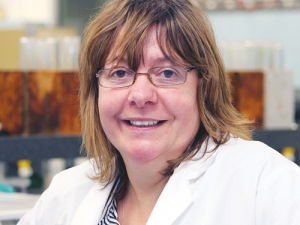Economic benefits worth up to $340m in GDP could accrue from a science-based and internationally peer-reviewed calf nutrition programme if adopted by 10% of the national herd, new research shows.
Economic research agency BERL has analysed the results of a seven-year ongoing study by Massey University into the efficacy of the Queen of Calves feed supplement, which uses marine and land plant extracts to enhance the nutritional value of milk fed to calves.
BERL’s analysis of dairy systems leader Dr Jean Margerison’s research shows the nutritional supplement boosts milk solids (MS) production, potentially increases herd survival rate and can reduce the grazing footprint and herd size without lowering output.
BERL suggests that raising 10% of the national herd (500,000 cows) on the supplement programme would achieve the following:
- Produce 25m tonnes more milk solids than at present on the same grazing land
- Generate extra farm income of $150m a year from the same grazing land
- The extra $150m in farm income would multiply up to a value chain increase in GDP of about $340m a year
Alternatively, farmers could maintain the present levels of production, and produce that on a 13% less grazing land, reducing the environmental impact
Present level of production would be produced by 46,000 fewer cows.
Margerison’s testing of the feed supplement on a group of calves over five lactation cycles demonstrated Queen of Calves delivered, on average, an extra 30kgMS/lactation compared to the control group and same-age heifers. She claims the seven year on-going study was exhaustive and proved that significant gains for calf and heifer weight gain, milk production and longer productive life resulted from the use of the nutritional supplement.
“Currently in New Zealand, more than one in five of the national dairy herd will not survive past the second lactation phase,” says Margerison. “This is hugely inefficient, and represents a significant cost to the farmer. In a depressed payout environment such as farmers face today, the financial margins to be able to sustain this simply do not exist.
“What our research shows is that the Queen of Calves feed programme is not just an opportunity to mitigate existing herd replacement costs, but also to realise long-term economic gains for dairy farming.”
Once all of an average 400-cow herd had been raised on Queen of Calves and had reached peak production, the revenue benefits could be $72,000 per season above that achieved by a similar farm not using the supplement, analysis of her findings by BERL shows.
Stephen Bell-Booth, whose company is behind the development of the programme, says it has been a long and robust process to establish the benefits, including a seven-year longitudinal study, that still continues. “About 5% of the national herd is already using Queen of Calves and we’ve proved its efficacy. We succeeded because we focussed on the milk-feeding phase, the importance of which has not until now been generally recognised, in determining the future output of dairy cows.”
95% survival in trial
Many peer-reviewed studies show that the early (lean, not fat) growth in calves is a major factor in future milk production.
LIC’s analysis shows that 73% of NZ heifers are underweight by an average of 14% at herd entry (22 months). The study at Massey showed the Queen of Calves herd was on average only 0.7% below the target weight at herd entry, researchers claim.
The survival rate of the Massey University Queen of Calves herd through to third lactation was 13% greater than the control group, which in turn had a higher rate than the Friesian herd nationally. The average survival rate to third lactation for the national herd is 62%; for the control group it was 84%. The Queen of Calves survival rate was 95%.










